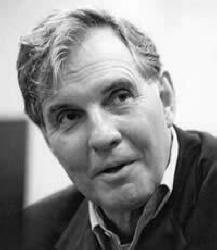'The Worst Day Of My Life'
Former MP Jonathan Aitken recalls doing time at Belmarsh jail
|
The disgraced former Tory cabinet minister Jonathan Aitken was jailed for perjury in 1999 and served 7 months.
He was recently invited to Ealing to speak about his experiences.
Local resident Ricky Davies was there:
Jonathan Aitken this week condemned the treatment of inmates in modern British prisons, in a talk given at a full capacity St Stephen’s Church in Ealing.
Aitken was invited to discuss his conversion to Christianity whilst incarcerated in Belmarsh Prison.
Recounting the day he was jailed as “the worst day of my life”, Aitken went on to expose the overcrowded “cage” he waited in before being strip searched.
He found no solace in cell 321B as fellow inmates singled him out with sinister threats throughout the night.
He said : “They chanted about doing things to certain parts of my anatomy...I’ve never felt more terrified or vulnerable in my life.”
Aitken was outraged as he spoke about the number of young men in jail - the average age of prisoners he said was 23 and a third of them were illiterate. He was particularly damning of the prison’s inability to rehabilitate the inmates.
Aitken described how he helped several men learn to read and write and how one inmate trawled the prison repeating “that MP has neat joined up handwriting” and another offered him a gift as thanks for his help.
He believes that simple literacy courses in prison are fundamental to the successful rehabilitation of people who he found could be surprisingly well-mannered and appreciative.
Before being jailed Aitken said he had been doubtful about religion, stating that he explored Christianity “out of good manners rather than any spiritual curiosity”.
Once in prison however he found Christianity could be used as an antidote to the lack of moral guidance available.
He claimed there were three major ways in which fellow inmates would pray.
Those beginning ‘Our Father’ had parental issues, such as those who were raised fatherless. Inmates addressing Jesus needed love in their life, whilst those seeking The Holy Spirit needed a higher power to overcome drug addiction.
This simple use of prayer, Aitken explained, was more effective than anything the prison staff had to offer.
In one insightful moment, Aitken spoke of a close friend and fellow inmate Paddy, whom had “tremendous drive and energy”, and helped recruit “armed robbers, fraudsters and criminals” to the Christian worship group they had begun.
Although clearly an advocate of Christianity, Aitken described his journey as a “painful process” rather than a moment of enlightenment.
He believes Christianity is a vital component in reforming prisoners who perhaps would have otherwise remained a danger to society.
He said: “There were twenty of us [converted Christians] in the end, and about fourteen or fifteen are now going straight.”
A born anecdotalist, Aitken had his listeners hooked from the start, and stayed at the end to answer questions from an engrossed audience.
Ricky Davies
September 15, 2010
